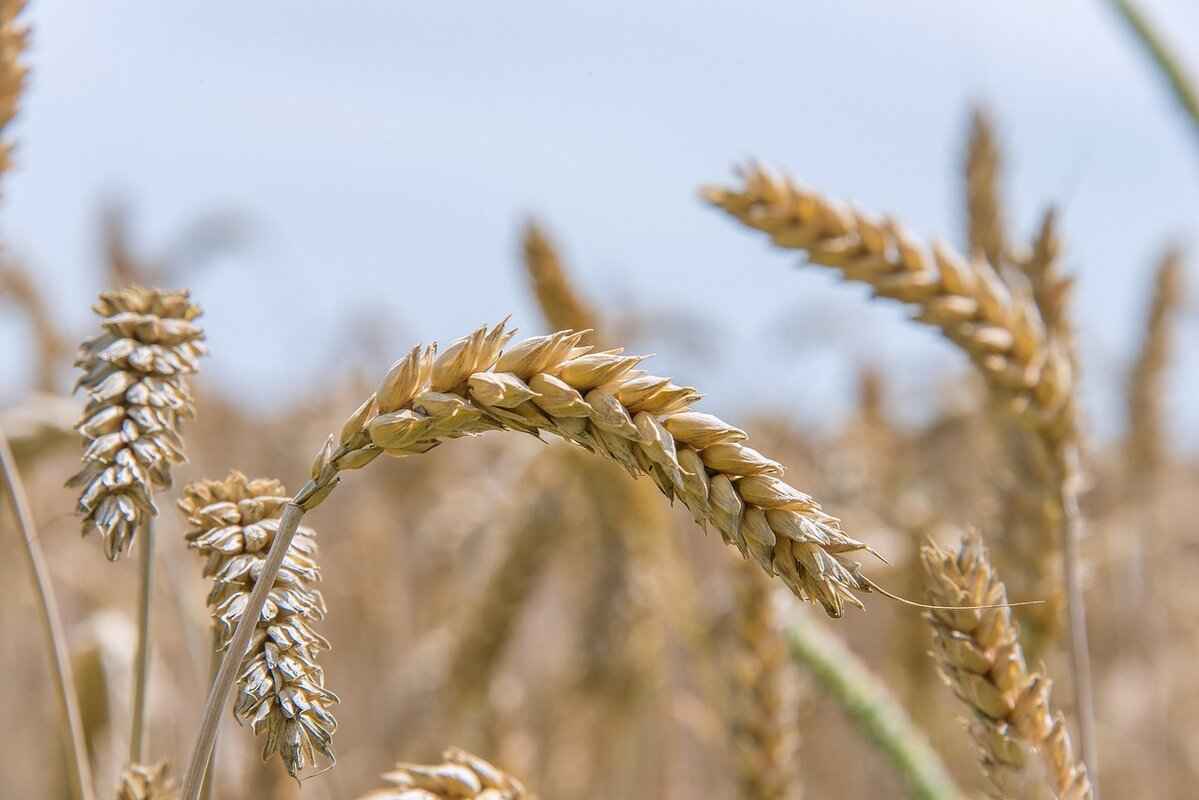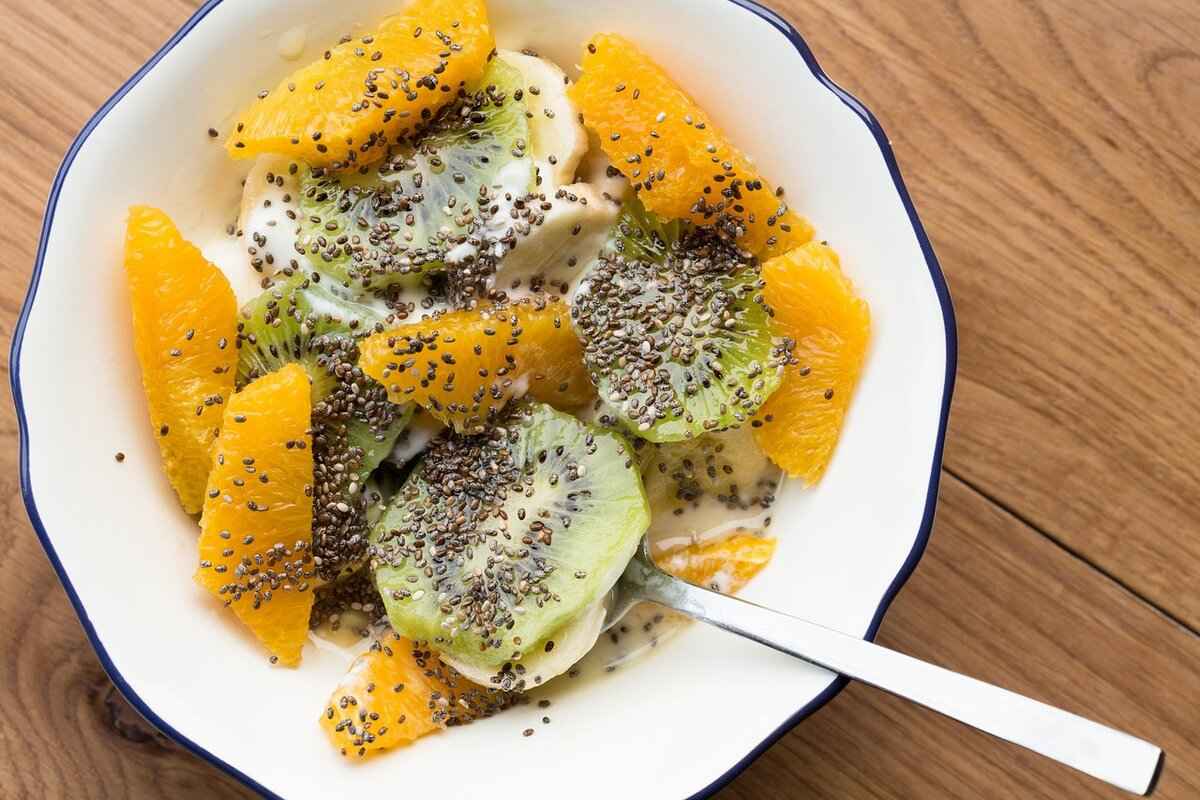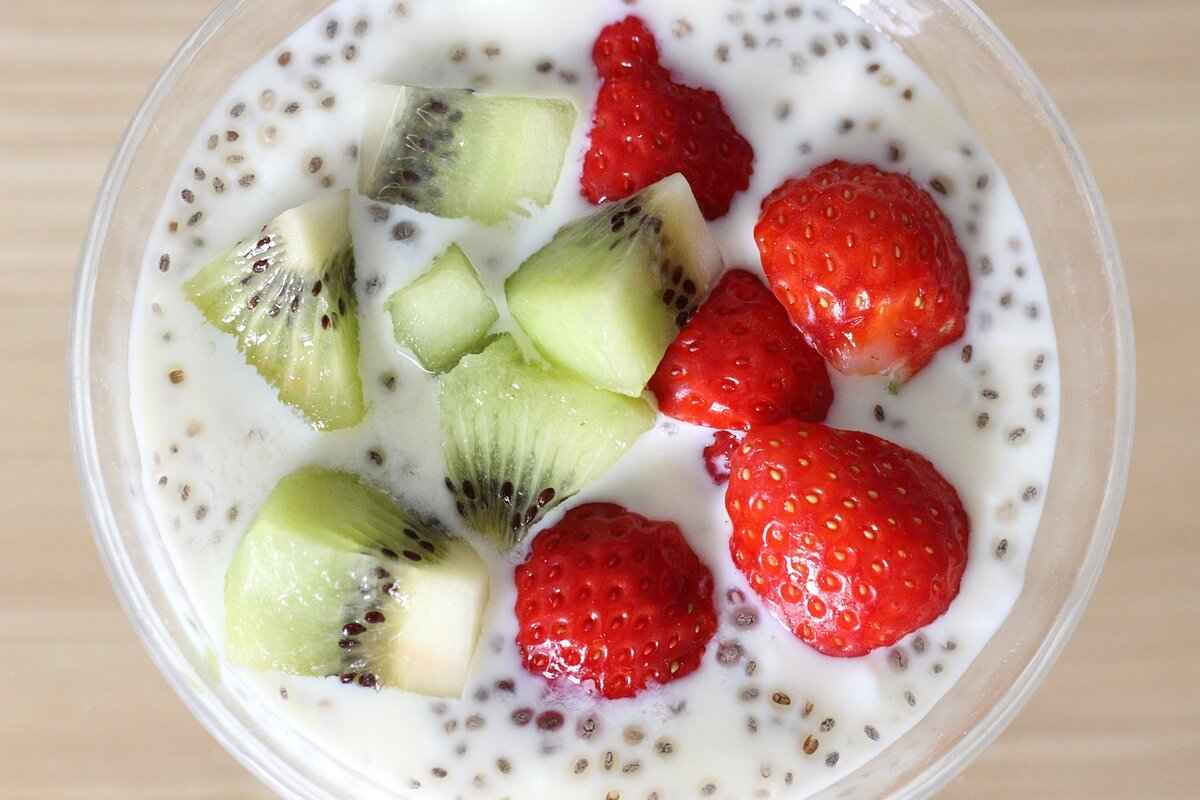Chia seeds have gained popularity in recent years as a superfood, particularly for their potential in aiding digestion and alleviating constipation. This article delves into the numerous benefits of chia seeds, their impressive nutritional profile, and practical methods to incorporate them into your daily diet for enhanced digestive health.
Chia seeds are small, black or white seeds obtained from the Salvia hispanica plant, native to Central America. These seeds are rich in nutrients, including omega-3 fatty acids, protein, and a significant amount of dietary fiber, making them an excellent addition to a balanced diet.
The high fiber content in chia seeds plays a crucial role in promoting digestive health. When chia seeds are consumed, they absorb water and expand, forming a gel-like substance. This process not only helps to soften stool but also facilitates smoother bowel movements, which can be particularly beneficial for those suffering from constipation.
Chia seeds contain both soluble and insoluble fiber, each playing a unique role in digestion. Soluble fiber dissolves in water, helping to regulate digestion by forming a gel that slows down the digestive process. In contrast, insoluble fiber adds bulk to the stool, promoting regularity and preventing constipation.
Soluble fiber is particularly effective in softening stool, making it easier to pass. This characteristic is essential for individuals experiencing constipation, as it provides a natural remedy to improve bowel movements without the need for laxatives.
Insoluble fiber contributes to digestive health by adding bulk to the stool, which not only promotes regularity but also prevents constipation. The combination of both fiber types in chia seeds makes them a powerful ally for maintaining optimal digestive health.
Integrating chia seeds into your meals is both easy and versatile. Here are some practical ideas:
- Add chia seeds to smoothies for a nutritional boost.
- Mix them into yogurt or oatmeal for added texture.
- Sprinkle chia seeds on salads for a crunchy topping.
- Use them as an egg substitute in baking by mixing with water.
To enjoy the digestive benefits, a typical serving size of chia seeds is about 1 to 2 tablespoons daily. This amount provides sufficient fiber to aid digestion without overwhelming your system.
Soaking chia seeds in water or milk before consumption is highly recommended. This process allows them to expand and form a gel-like consistency, making them easier to digest and enhancing their health benefits.
While chia seeds are generally safe for most people, it’s essential to consume them in moderation. Overconsumption may lead to digestive discomfort, such as bloating or gas. Listening to your body and adjusting your intake accordingly is crucial.
In addition to chia seeds, consider incorporating other high-fiber foods into your diet. Fruits, vegetables, and whole grains are excellent sources of fiber that can further support digestive health and help alleviate constipation.
Before making significant dietary changes, especially for digestive concerns, it’s advisable to consult with a healthcare professional. They can provide personalized guidance to ensure that your approach to improving digestion aligns with your individual health needs.

What Are Chia Seeds?
Chia seeds have gained popularity as a superfood in recent years, but what exactly are they? These tiny, nutrient-dense seeds are derived from the Salvia hispanica plant, native to Central America. Known for their remarkable health benefits, particularly in the realm of digestive health, chia seeds are a powerhouse of nutrition.
Chia seeds are small, oval-shaped seeds that come in various colors, including black, white, and brown. They are particularly valued for their high fiber content, which plays a crucial role in maintaining digestive health. One of the most notable aspects of chia seeds is their ability to absorb water—up to 12 times their weight—forming a gel-like substance when soaked. This unique property makes them an excellent addition to your diet, especially for those seeking to alleviate digestive issues such as constipation.
- High in Fiber: Chia seeds contain both soluble and insoluble fiber, contributing to a healthy digestive system.
- Rich in Omega-3 Fatty Acids: These seeds are one of the best plant-based sources of omega-3s, which are essential for heart health.
- Loaded with Antioxidants: They contain antioxidants that help combat oxidative stress and inflammation in the body.
- Protein Source: Chia seeds are a great plant-based protein option, making them suitable for vegans and vegetarians.
The digestive benefits of chia seeds primarily stem from their high fiber content. When consumed, the soluble fiber in chia seeds absorbs water and forms a gel, which helps to soften stool and promote regular bowel movements. This can be particularly beneficial for individuals suffering from constipation. Additionally, the insoluble fiber in chia seeds adds bulk to the stool, enhancing its movement through the digestive tract.
To fully appreciate how chia seeds contribute to digestive health, it’s essential to understand the difference between soluble and insoluble fiber. Soluble fiber dissolves in water, forming a gel-like substance that can help regulate blood sugar levels and lower cholesterol. On the other hand, insoluble fiber does not dissolve in water and adds bulk to the stool, promoting regularity and preventing constipation. Chia seeds contain a balanced mix of both types of fiber, making them an effective dietary choice for digestive health.
Incorporating chia seeds into your daily meals is simple and versatile. Here are some practical ideas:
- Add chia seeds to smoothies for a nutritious boost.
- Mix them into yogurt or oatmeal for added texture and fiber.
- Use chia seeds as an egg substitute in baking by mixing them with water.
- Sprinkle them on salads or soups for an extra crunch.
To enjoy the digestive benefits of chia seeds, a typical serving size is about 1 to 2 tablespoons daily. This amount provides sufficient fiber to aid digestion without overwhelming your system.
For optimal digestion, it’s recommended to soak chia seeds in water or milk before consumption. Soaking allows them to expand and form a gel-like consistency, making them easier to digest and enhancing their health benefits. Simply mix chia seeds with liquid and let them sit for at least 30 minutes before consuming.
While chia seeds are generally safe for most people, overconsumption can lead to digestive discomfort, including bloating or gas. It’s essential to introduce them gradually into your diet and consume them in moderation to enjoy their benefits without adverse effects.
In addition to chia seeds, consider incorporating other high-fiber foods into your diet, such as fruits, vegetables, and whole grains. These foods can support digestive health and help alleviate constipation effectively.
Before making significant dietary changes or if you have ongoing digestive issues, consulting with a healthcare professional is advisable. They can provide personalized advice and ensure the best approach for your individual health needs.

How Do Chia Seeds Aid Digestion?
Chia seeds have gained popularity in recent years as a superfood, particularly for their impressive health benefits related to digestion. These tiny seeds, derived from the Salvia hispanica plant, are packed with essential nutrients, including omega-3 fatty acids, proteins, and a significant amount of dietary fiber. Among their various benefits, chia seeds stand out for their ability to promote digestive health and alleviate constipation.
Chia seeds promote digestion through their high content of soluble fiber. This type of fiber has a unique ability to absorb water, forming a gel-like substance in the digestive tract. This gel-like consistency helps to soften the stool, making it easier to pass and thereby alleviating constipation. When consumed, chia seeds can expand up to 10-12 times their original size, which not only aids in hydration but also helps regulate bowel movements.
Soluble fiber plays a crucial role in maintaining digestive health. It dissolves in water, forming a viscous gel that slows down digestion, allowing for better nutrient absorption. This process is particularly beneficial for individuals experiencing irregular bowel movements or constipation. By incorporating chia seeds into your diet, you can increase your intake of soluble fiber, which may lead to improved digestive regularity.
In addition to soluble fiber, chia seeds also contain insoluble fiber. This type of fiber does not dissolve in water and adds bulk to the stool, promoting regularity and preventing constipation. The combination of both soluble and insoluble fiber in chia seeds makes them an effective food for supporting overall digestive health. The balance of these fibers helps ensure that your digestive system functions optimally.
- Smoothies: Add a tablespoon of chia seeds to your favorite smoothie for added texture and nutrition.
- Yogurt: Mix chia seeds into yogurt for a satisfying and fiber-rich snack.
- Oatmeal: Stir chia seeds into your morning oatmeal to enhance its health benefits.
- Baking: Incorporate chia seeds into baked goods like muffins or bread for a nutritious boost.
To experience the digestive benefits of chia seeds, it is recommended to consume about 1 to 2 tablespoons daily. This amount provides sufficient fiber to aid digestion without overwhelming your digestive system.
Soaking chia seeds before consumption is an effective way to maximize their health benefits. When soaked in water or milk, chia seeds expand and develop a gel-like consistency, making them easier to digest. This preparation method also enhances their nutrient absorption, allowing your body to reap the full benefits of their fiber content.
While chia seeds are generally safe for most people, it is important to consume them in moderation. Overconsumption can lead to digestive discomfort, such as bloating or gas. If you are new to chia seeds, start with small amounts and gradually increase your intake to allow your digestive system to adjust.
In addition to chia seeds, incorporating other high-fiber foods into your diet can further support digestive health. Foods such as fruits, vegetables, and whole grains are excellent sources of dietary fiber that can help alleviate constipation and promote regular bowel movements.
Before making significant dietary changes, especially if you have pre-existing digestive issues, it is advisable to consult with a healthcare professional. They can provide personalized recommendations based on your individual health needs and ensure that you are making the best choices for your digestive health.
Understanding Soluble vs. Insoluble Fiber
is essential for anyone looking to improve their digestive health. Fiber is a crucial component of a balanced diet, and it comes in two primary forms: soluble and insoluble. Each type plays a unique role in the body, particularly in digestion and overall gut health.
What is Soluble Fiber? Soluble fiber is a type of fiber that dissolves in water, forming a gel-like substance in the digestive tract. This gel helps to regulate digestion by slowing down the absorption of sugars, which can aid in blood sugar control. Additionally, soluble fiber promotes the growth of beneficial gut bacteria, enhancing overall gut health. Foods rich in soluble fiber include oats, beans, lentils, apples, and chia seeds.
How Does Soluble Fiber Help with Digestion? One of the primary benefits of soluble fiber is its ability to soften stool. This is particularly helpful for individuals experiencing constipation, as it makes bowel movements easier and more regular. The gel-like consistency created by soluble fiber can also help to alleviate diarrhea by absorbing excess water in the intestines.
What is Insoluble Fiber? In contrast to soluble fiber, insoluble fiber does not dissolve in water. Instead, it adds bulk to the stool and helps food pass more quickly through the stomach and intestines. This type of fiber is crucial for maintaining regular bowel movements and preventing constipation. Common sources of insoluble fiber include whole grains, nuts, seeds, and the skins of fruits and vegetables.
How Does Insoluble Fiber Benefit Digestion? By adding bulk to the stool, insoluble fiber promotes regularity and helps prevent conditions such as diverticulitis and hemorrhoids. It acts like a broom, sweeping through the digestive tract and keeping it clean. This can lead to improved digestive health and a reduced risk of gastrointestinal disorders.
Why Are Both Types of Fiber Important? A diet that includes both soluble and insoluble fiber is essential for optimal digestive health. Soluble fiber helps to regulate digestion and maintain stable blood sugar levels, while insoluble fiber ensures that the digestive tract remains clean and functioning properly. Chia seeds, for example, are an excellent source of both types of fiber, making them a valuable addition to any diet.
How to Incorporate Both Types of Fiber into Your Diet? To reap the benefits of both soluble and insoluble fiber, consider the following tips:
- Start your day with a bowl of oatmeal topped with fruits like bananas or berries.
- Add beans or lentils to salads and soups for an extra fiber boost.
- Include whole grains, such as brown rice or quinoa, in your meals.
- Snack on raw vegetables, nuts, or seeds throughout the day.
- Incorporate chia seeds into smoothies, yogurt, or baked goods.
Recommended Daily Intake of Fiber The American Heart Association recommends that adults consume at least 25 to 30 grams of fiber daily from food sources. This can be achieved by incorporating a variety of fiber-rich foods into your diet, ensuring a balance of both soluble and insoluble fiber.
Potential Side Effects of Excessive Fiber Intake While fiber is beneficial, consuming too much too quickly can lead to digestive discomfort, including bloating and gas. It’s essential to gradually increase fiber intake and drink plenty of water to help manage these effects.
In conclusion, understanding the differences between soluble and insoluble fiber can empower individuals to make informed dietary choices. By incorporating both types of fiber into your diet, particularly through foods like chia seeds, you can promote better digestive health and overall well-being.
The Role of Soluble Fiber in Constipation Relief
Understanding the Role of Soluble Fiber in Constipation Relief
Constipation is a common digestive issue affecting many individuals, often leading to discomfort and frustration. One of the most effective natural remedies for alleviating this condition is the inclusion of soluble fiber in the diet. Among various sources of soluble fiber, chia seeds stand out due to their unique properties and health benefits.
Chia seeds, derived from the Salvia hispanica plant, are incredibly rich in nutrients. They boast a high fiber content, particularly soluble fiber, which plays a crucial role in digestive health. When chia seeds are consumed, they absorb water and swell, forming a gel-like substance that can significantly ease bowel movements. This gel-like consistency helps to soften the stool, making it easier to pass and providing relief for those suffering from constipation.
Why is Soluble Fiber Important?
- Soluble fiber dissolves in water, forming a viscous gel that aids in digestion.
- It slows down digestion, allowing for better nutrient absorption.
- It helps regulate blood sugar levels, contributing to overall health.
In contrast, insoluble fiber adds bulk to the stool and aids in moving food through the digestive tract. Chia seeds provide a balanced combination of both soluble and insoluble fiber, making them an excellent choice for promoting digestive health. The soluble fiber in chia seeds not only helps with stool consistency but also supports beneficial gut bacteria, enhancing overall gut health.
How Much Soluble Fiber Do You Need?
The recommended daily intake of fiber for adults is about 25-30 grams, with a focus on incorporating both soluble and insoluble sources. A typical serving of chia seeds, which is about 1 to 2 tablespoons, can provide approximately 5 grams of fiber, making them a valuable addition to your diet.
Incorporating Chia Seeds into Your Diet
Integrating chia seeds into your meals is easy and versatile. Here are some practical ways to enjoy them:
- Add chia seeds to your morning smoothie for a nutritious boost.
- Mix them into yogurt or oatmeal for added texture and fiber.
- Use chia seeds as a thickening agent in soups and sauces.
- Prepare chia pudding by soaking them in almond milk or coconut milk overnight.
Potential Side Effects of Chia Seeds
While chia seeds are generally safe for most people, it is essential to consume them in moderation. Overconsumption can lead to digestive discomfort, including bloating or gas. Always ensure you drink plenty of water when consuming high-fiber foods to aid digestion.
Other Natural Remedies for Constipation
In addition to chia seeds, several other foods can help alleviate constipation. Incorporating fruits, vegetables, and whole grains into your diet can provide additional fiber and promote digestive health. Foods such as apples, pears, and leafy greens are excellent sources of fiber that can complement the benefits of chia seeds.
Consulting a Healthcare Professional
Before making significant dietary changes, especially if you are experiencing chronic constipation, consulting with a healthcare professional is advisable. They can provide personalized advice and ensure that your dietary choices align with your health needs.
In summary, the soluble fiber found in chia seeds plays a vital role in alleviating constipation by softening stool and promoting regular bowel movements. By incorporating chia seeds into a balanced diet, individuals can naturally support their digestive health.
Insoluble Fiber and Its Benefits
Insoluble fiber plays a crucial role in maintaining digestive health and is essential for those looking to improve their overall gastrointestinal function. Unlike soluble fiber, which dissolves in water, insoluble fiber does not dissolve but instead adds bulk to the stool. This characteristic is vital for promoting regular bowel movements and preventing constipation.
One of the primary benefits of insoluble fiber is its ability to regulate bowel movements. By adding bulk to the stool, it helps food pass more easily through the digestive tract. This is particularly important for individuals who may struggle with irregularity or infrequent bowel movements. The presence of insoluble fiber in the diet can significantly reduce the risk of developing constipation, which is a common issue affecting many people.
Insoluble fiber also contributes to the overall health of the gut. It serves as a natural laxative, helping to keep the digestive system functioning smoothly. By promoting a healthy gut environment, insoluble fiber can assist in preventing conditions such as diverticulitis and other gastrointestinal disorders. Furthermore, it can help maintain a healthy weight by promoting a feeling of fullness, which can reduce overeating.
Chia seeds are an excellent source of both soluble and insoluble fiber, making them a perfect addition to any diet aimed at enhancing digestive health. These tiny seeds swell when they absorb water, forming a gel-like substance that can help facilitate digestion. This unique property allows chia seeds to balance the effects of both types of fiber, offering optimal digestive support.
For those looking to incorporate more insoluble fiber into their diets, it’s essential to include a variety of high-fiber foods. Some great sources include:
- Whole grains: Brown rice, quinoa, and whole wheat products.
- Vegetables: Carrots, broccoli, and leafy greens.
- Nuts and seeds: Almonds, walnuts, and flaxseeds.
When planning to increase fiber intake, it’s important to do so gradually. A sudden increase in fiber can lead to digestive discomfort, including bloating and gas. It is advisable to drink plenty of water, as this will help the fiber do its job effectively and prevent any potential issues.
In summary, incorporating insoluble fiber into your diet is a straightforward and effective way to enhance digestive health. Chia seeds, with their unique combination of fiber types, offer a simple solution for those seeking to improve their gastrointestinal function. By adding chia seeds and other high-fiber foods to your meals, you can promote regularity, prevent constipation, and support overall gut health.
How to Incorporate Chia Seeds into Your Diet
Incorporating chia seeds into your diet can be both easy and enjoyable. These tiny seeds are not only versatile but they also bring a wealth of health benefits, particularly for digestion. Here are some practical and delicious ways to add chia seeds to your meals.
One of the simplest ways to include chia seeds in your diet is by blending them into your smoothies. Just one tablespoon of chia seeds can boost your smoothie’s fiber content, making it more satisfying and nutritious. They blend well with fruits like bananas, berries, and spinach, providing a creamy texture.
Transform your regular yogurt into a nutrient powerhouse by stirring in chia seeds. This combination not only enhances the texture but also adds a delightful crunch. You can mix it with honey or fresh fruits for added flavor and sweetness. This makes for a perfect breakfast or snack option.
Chia seeds can be sprinkled over your morning oatmeal for an extra boost of fiber and omega-3 fatty acids. They absorb moisture, creating a gel-like consistency that can enhance the overall texture of your dish. Consider adding nuts, fruits, or a drizzle of maple syrup for a delicious breakfast.
Incorporating chia seeds into baked goods is another excellent way to enjoy their benefits. You can add them to muffins, breads, or pancakes. They can even replace eggs in vegan baking when mixed with water, creating a binding agent. This not only makes your baked goods healthier but also adds a unique flavor.
Chia seed pudding is a popular and nutritious dessert that is incredibly easy to make. Simply combine 1/4 cup of chia seeds with 1 cup of milk (dairy or plant-based), sweeten to taste, and let it sit in the fridge for a few hours or overnight. The seeds will absorb the liquid and form a delightful pudding texture. You can top it with fruits, nuts, or a sprinkle of cinnamon for added flavor.
Chia seeds can also be a great addition to salads. Sprinkle a tablespoon over your salad for a nutritious crunch. They pair well with leafy greens, vegetables, and even fruits, adding both flavor and health benefits.
For a unique twist, consider adding chia seeds to your soups. They can act as a thickening agent and enhance the nutritional profile of your dish. Just be sure to let them soak in the soup for a few minutes before serving.
Energy bites made with chia seeds are a fantastic snack option. Combine chia seeds with oats, nut butter, honey, and your choice of mix-ins like chocolate chips or dried fruit. Roll them into bite-sized balls and enjoy a quick, healthy snack on the go.
In summary, the versatility of chia seeds makes them easy to incorporate into various meals throughout the day. Whether you choose to blend them into smoothies, mix them into yogurt, or use them in baking, you’re sure to enhance both the nutritional value and enjoyment of your meals. With so many options available, adding chia seeds to your diet can be a delicious and healthful choice!

Recommended Serving Sizes of Chia Seeds
Chia seeds have gained popularity as a superfood, particularly for their impressive nutritional profile and numerous health benefits. Among these benefits, their role in aiding digestion is particularly noteworthy. To effectively harness the digestive advantages of chia seeds, it’s essential to understand the recommended serving sizes and how they contribute to overall gut health.
To reap the digestive benefits, a typical serving size of chia seeds is about 1 to 2 tablespoons daily. This amount provides sufficient fiber to aid digestion. The fiber content in chia seeds is primarily soluble, meaning it can absorb water and form a gel-like substance, which is crucial for promoting regular bowel movements. This gel-like consistency helps to soften the stool and can alleviate symptoms of constipation.
When considering how to incorporate chia seeds into your diet, it’s important to note that moderation is key. For most individuals, starting with 1 tablespoon can be an effective way to gauge how your body responds. As you become accustomed to the increased fiber intake, you can gradually increase to 2 tablespoons if desired. However, it is advisable to drink plenty of water when consuming chia seeds, as they can absorb up to 10-12 times their weight in liquid, which can help prevent any potential digestive discomfort.
Fiber plays a critical role in maintaining digestive health. It is categorized into two types: soluble fiber and insoluble fiber. Chia seeds contain both, making them a well-rounded choice for improving gut health. Soluble fiber helps to regulate digestion by forming a gel-like substance that slows digestion and aids in nutrient absorption. On the other hand, insoluble fiber adds bulk to the stool, promoting regularity and preventing constipation.
To maximize the health benefits of chia seeds, consider soaking them before consumption. Soaking chia seeds in water or milk for about 30 minutes allows them to expand and form a gel-like texture, making them easier to digest. This preparation method not only enhances their digestibility but also boosts their nutritional profile, allowing for better absorption of vitamins and minerals.
Adding chia seeds to your meals is simple and versatile. Here are some practical ideas:
- Smoothies: Blend chia seeds into your favorite smoothie for added texture and nutrition.
- Yogurt: Stir chia seeds into yogurt for a satisfying crunch.
- Oatmeal: Mix chia seeds into your morning oatmeal or cereal for an extra fiber boost.
- Baking: Incorporate chia seeds into baked goods like muffins or bread for enhanced health benefits.
While chia seeds are generally safe for most people, overconsumption can lead to digestive discomfort such as bloating or gas. It is essential to listen to your body and adjust the serving size accordingly. If you experience any adverse effects, consider reducing your intake or consulting a healthcare professional.
In addition to chia seeds, other high-fiber foods such as fruits, vegetables, and whole grains can support digestive health. Incorporating a variety of fiber sources into your diet can enhance overall digestive function and help alleviate constipation effectively.
Before making significant dietary changes, particularly for digestive issues, consulting with a healthcare professional is advisable. They can provide personalized recommendations based on your health needs, ensuring that you achieve the best results.
How to Prepare Chia Seeds for Maximum Benefits
Chia seeds have gained immense popularity due to their numerous health benefits, particularly in aiding digestion. One of the most effective methods to maximize their benefits is through proper preparation. Soaking chia seeds in water or milk before consumption is a simple yet powerful technique that allows these tiny seeds to expand and transform into a gel-like consistency. This process not only makes them easier to digest but also enhances their overall health benefits.
Soaking chia seeds is essential for several reasons:
- Hydration: When chia seeds are soaked, they absorb liquid and swell, which helps to keep the body hydrated.
- Improved Digestion: The gel-like texture formed after soaking aids in the digestive process, making it easier for the body to break down and absorb nutrients.
- Enhanced Nutrient Availability: Soaking can help in releasing nutrients, making them more bioavailable for absorption.
Preparing chia seeds is incredibly straightforward. Here’s a simple method to soak them:
1. Measure out 1-2 tablespoons of chia seeds.2. Combine the seeds with 1 cup of water or milk in a bowl or jar.3. Stir well to prevent clumping.4. Let the mixture sit for at least 15-30 minutes, or overnight in the refrigerator for best results.5. Once the seeds have absorbed the liquid and formed a gel, they are ready to be consumed.
Once your chia seeds are soaked, there are numerous delicious ways to incorporate them into your meals:
- Smoothies: Blend soaked chia seeds into your favorite smoothie for added texture and nutrition.
- Yogurt: Mix soaked chia seeds into yogurt for a satisfying snack or breakfast.
- Oatmeal: Stir them into hot oatmeal for a nutritious boost.
- Baking: Add soaked chia seeds to muffins, pancakes, or bread for enhanced fiber content.
Soaked chia seeds offer several health benefits, including:
- Digestive Health: The soluble fiber in chia seeds helps to regulate bowel movements and alleviate constipation.
- Weight Management: The gel-like consistency can promote a feeling of fullness, aiding in weight control.
- Heart Health: Chia seeds are rich in omega-3 fatty acids, which are beneficial for heart health.
While chia seeds are generally safe, it’s important to consume them in moderation. Overconsumption may lead to digestive discomfort, such as bloating or gas. Always ensure you drink plenty of water when including chia seeds in your diet to aid in digestion.
In conclusion, soaking chia seeds is a simple yet effective way to maximize their health benefits. By incorporating them into your meals, you can enjoy improved digestion and overall health. Remember to experiment with different recipes and find what works best for you!
Potential Side Effects of Chia Seeds
Chia seeds are celebrated for their numerous health benefits, particularly in aiding digestion and providing essential nutrients. However, like any food, they can have potential side effects, especially when consumed in excess. Understanding these effects is crucial for anyone looking to incorporate chia seeds into their diet.
While chia seeds are generally safe for most people, overconsumption can lead to various digestive issues. These tiny seeds are packed with fiber, which can be beneficial in moderation but may cause discomfort when eaten in large amounts. Here are some potential side effects:
- Bloating: Due to their high fiber content, chia seeds can lead to bloating, especially if consumed without adequate hydration.
- Gas: Increased gas production can occur as the body adjusts to a higher fiber intake, which may be uncomfortable for some individuals.
- Digestive Blockage: In rare cases, consuming too many chia seeds without sufficient liquid can lead to a blockage in the digestive tract, particularly if the seeds are not adequately soaked beforehand.
- Allergic Reactions: Though uncommon, some individuals may experience allergic reactions to chia seeds, resulting in symptoms such as rash, itching, or difficulty breathing.
To enjoy the benefits of chia seeds without experiencing adverse effects, moderation is essential. A typical serving size is about 1 to 2 tablespoons per day. This amount provides sufficient fiber to promote digestive health while minimizing the risk of discomfort.
To reduce the likelihood of digestive issues, consider the following tips:
- Hydrate: Always consume chia seeds with plenty of water. Soaking them in water or milk before consumption allows them to expand and form a gel-like substance, which aids in digestion.
- Gradually Increase Intake: If you’re new to chia seeds, start with a smaller amount and gradually increase your intake to allow your digestive system to adjust.
- Combine with Other Foods: Mix chia seeds with other high-fiber foods, such as fruits and vegetables, to create a balanced meal that supports digestion.
Before adding chia seeds to your diet, especially if you have pre-existing digestive issues or other health concerns, it’s advisable to consult with a healthcare professional. They can provide personalized recommendations based on your health history and dietary needs.
In summary, while chia seeds are a nutritious addition to your diet, being aware of their potential side effects is crucial. By consuming them in moderation and following practical guidelines, you can enjoy their health benefits without the discomfort that may arise from overconsumption.

Other Foods for Digestive Health
When it comes to maintaining optimal digestive health, chia seeds are just one of many powerful foods that can help. A well-rounded diet rich in fiber is essential for preventing constipation and promoting regular bowel movements. In this section, we will explore various high-fiber foods, including fruits, vegetables, and whole grains, that can significantly enhance digestive health.
Fiber plays a crucial role in digestive health. It aids in adding bulk to the stool, making it easier to pass through the intestines. There are two main types of fiber: soluble fiber and insoluble fiber. Both types are important for a healthy digestive system, and incorporating a variety of fiber-rich foods into your diet can help alleviate constipation effectively.
- Apples: A great source of soluble fiber, apples can help regulate digestion and provide a satisfying snack.
- Bananas: Rich in potassium and fiber, bananas can help maintain electrolyte balance and promote healthy bowel movements.
- Berries: Blueberries, raspberries, and blackberries are loaded with antioxidants and fiber, making them excellent choices for digestive health.
- Pears: High in fiber and water content, pears can help soften stool and improve overall digestion.
Incorporating a variety of vegetables into your meals can provide essential nutrients and fiber. Some top choices include:
- Broccoli: This cruciferous vegetable is high in fiber and can help stimulate digestion.
- Carrots: Packed with fiber and beta-carotene, carrots can support gut health and regularity.
- Spinach: Leafy greens like spinach are rich in fiber and magnesium, which can aid in digestion.
- Sweet Potatoes: A nutritious source of fiber, sweet potatoes can help maintain healthy bowel function.
Whole grains are another excellent source of dietary fiber. They not only provide energy but also support digestive health. Some beneficial whole grains include:
- Oats: Oats are rich in soluble fiber, which can help lower cholesterol levels and improve gut health.
- Quinoa: A complete protein and fiber-rich grain, quinoa can help keep you feeling full while promoting healthy digestion.
- Brown Rice: A whole grain option that is high in fiber, brown rice can aid in digestion and provide sustained energy.
- Barley: This grain is high in both soluble and insoluble fiber, making it an excellent choice for digestive health.
To reap the benefits of these high-fiber foods, consider the following tips:
- Add fresh fruits to your breakfast cereal or yogurt.
- Include a variety of vegetables in salads, stir-fries, or soups.
- Substitute white rice with whole grains like quinoa or brown rice.
- Snack on fruits or raw vegetables instead of processed snacks.
In summary, a diet rich in a variety of high-fiber foods, including chia seeds, fruits, vegetables, and whole grains, is essential for maintaining digestive health and preventing constipation. By incorporating these foods into your meals, you can support your digestive system and promote overall well-being.

Consulting a Healthcare Professional
is an essential step before making significant dietary changes, especially for those experiencing digestive issues. The complexities of individual health needs make it crucial to seek expert advice tailored to your specific situation.
Digestive health is a multifaceted issue that varies greatly from person to person. Factors such as age, existing health conditions, medications, and lifestyle can all influence how your body responds to different foods. Therefore, it is advisable to consult with a healthcare professional who can provide personalized recommendations based on your unique health profile.
When considering dietary changes, particularly for conditions like constipation, it is important to understand how these changes may interact with your overall health. For instance, while chia seeds are widely recognized for their benefits in alleviating constipation due to their high fiber content, they may not be suitable for everyone. A healthcare professional can help you assess whether incorporating chia seeds or other high-fiber foods is appropriate for your specific digestive needs.
Why Is It Important to Consult a Professional?
- Personalized Guidance: A healthcare provider can evaluate your dietary habits and health status, offering tailored advice that aligns with your goals.
- Understanding Underlying Conditions: Digestive issues can stem from various underlying health problems. A professional can help identify these issues and recommend appropriate dietary adjustments.
- Avoiding Adverse Effects: Some foods can cause discomfort or exacerbate existing conditions. Consulting a professional helps to mitigate these risks.
Additionally, it is important to consider the role of fiber in your diet. While increasing fiber intake can improve digestion, doing so too quickly can lead to bloating or gas. A healthcare professional can guide you on how to gradually increase your fiber intake, ensuring a smoother transition.
What Questions Should You Ask?
- What dietary changes would you recommend for my specific digestive issues?
- Are there any potential interactions between my current medications and high-fiber foods?
- How can I effectively incorporate chia seeds or other fiber-rich foods into my diet?
Moreover, consulting with a healthcare professional can also provide insights into other lifestyle factors that contribute to digestive health. This includes hydration levels, physical activity, and stress management techniques, all of which play a significant role in digestion.
In summary, before embarking on any significant dietary changes, especially for digestive health, it is wise to consult a healthcare professional. They can offer valuable insights, personalized recommendations, and help you navigate the complexities of your individual health needs.
Frequently Asked Questions
- What are the benefits of chia seeds for digestion?
Chia seeds are packed with soluble and insoluble fiber, which helps to promote regular bowel movements, soften stool, and alleviate constipation. Their ability to absorb water and form a gel-like substance makes them particularly effective for digestive health.
- How can I incorporate chia seeds into my diet?
You can easily add chia seeds to your meals by mixing them into smoothies, yogurt, oatmeal, or even baked goods. They enhance the texture and boost the nutritional value of your dishes without altering the flavor!
- What is the recommended serving size of chia seeds?
The typical serving size is about 1 to 2 tablespoons daily. This amount provides sufficient fiber to help with digestion and constipation relief.
- Are there any side effects of consuming chia seeds?
While chia seeds are generally safe, consuming them in excess may lead to digestive discomfort, such as bloating or gas. Moderation is key to enjoying their numerous benefits without any negative effects.
- Should I consult a healthcare professional before using chia seeds for digestion?
Yes, it’s always a good idea to consult with a healthcare professional before making significant dietary changes, especially if you have existing digestive issues or health concerns.














